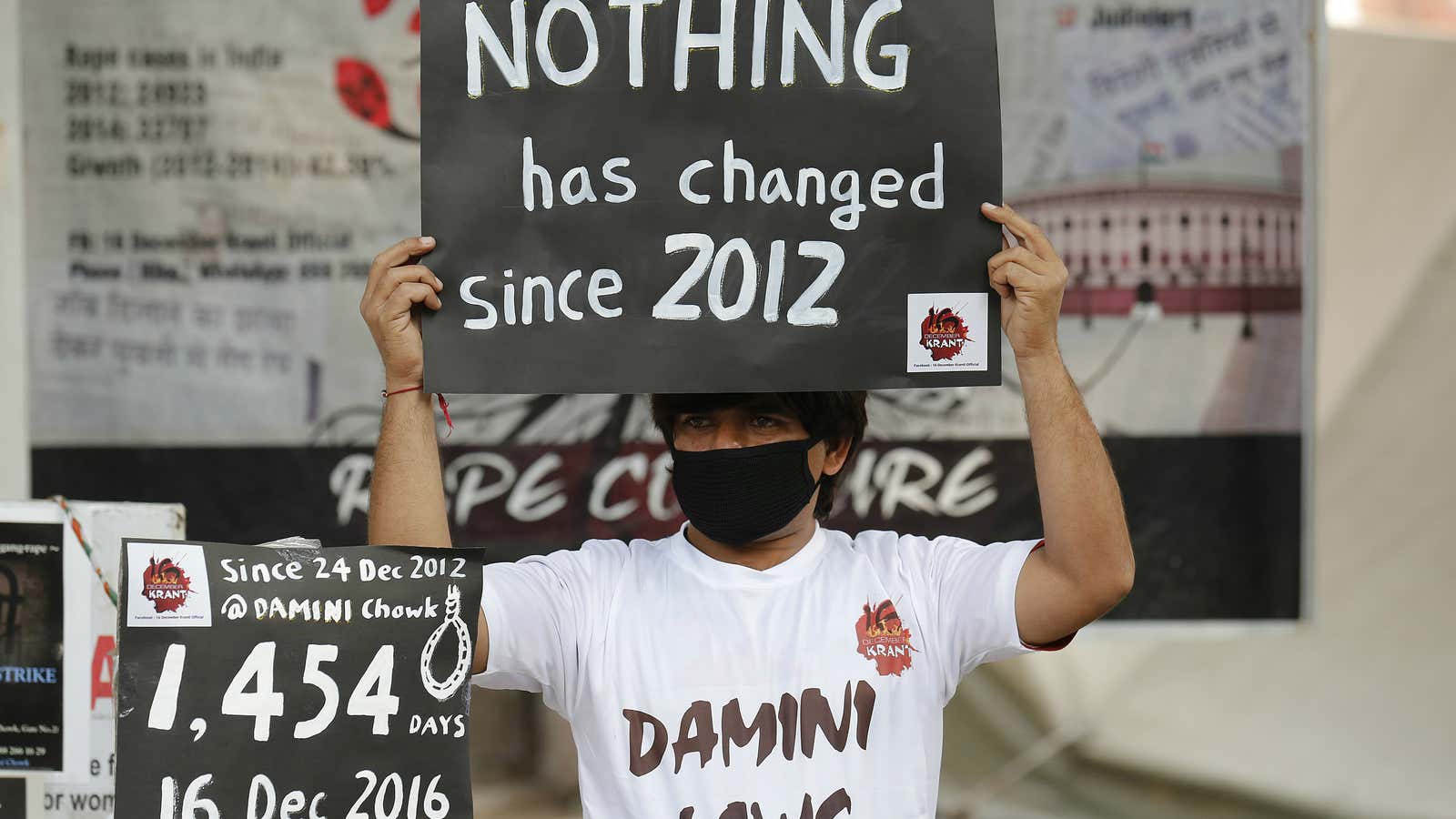In December 2012, a brutal gang rape on a moving bus in the capital of India rocked the entire nation. Nine months later, four of the perpetrators—Vinay Sharma, Akshay Thakur, Pawan Gupta, and Mukesh Singh—were sentenced to death, but they appealed the decision. After almost five years of nationwide outrage, the Supreme Court upheld the decision on May 5.
The revelry surrounding the decision was cut short when another brutal act of violence akin to the Delhi rape case occurred in Haryana. A young woman from the Sonepat district was reportedly abducted on May 9. Two days later, her mutilated body was found on the outskirts of Rohtak, 70 km from Delhi.
This wasn’t the first rape case to make headlines since 2012 but it was the most reminiscent of the torture Jyoti Singh—initially dubbed Nirbhaya (fearless)—underwent on the bus. The Haryana victim was drugged, raped and murdered. The assailants inserted sharp objects into her private parts, smashed her head, and ran over her with a car, India Today reported. By the time the body was recovered, stray dogs had bitten off parts of it.
“When the accused in the Nirbhaya case were punished, our village spoke about the verdict,” the Haryana rape victim’s distraught mother told NDTV. “We thought at least this will deter men, but unfortunately, even today, girls are not safe and men are not scared.”
So far, two men have been arrested, and six other suspects are currently being investigated, superintendent of police Ashwin Shenvi told Reuters. The prime suspect accused in the case, Sumit Kumar, was reportedly a jilted lover who stalked the woman. He and his friends committed the attack after she had refused marriage, according to Business Standard. In the majority of cases, the rapist is a known person like a relative, neighbor, or employer.
In recent years, the number of recorded rapes in India has surged. Some of the increase can be attributed to a reduction in stigma, with more women coming forward to report the crime as well as increased media vigilance. Since the Nirbhaya case, India has enacted tougher sentences for rapists and tried cases through ”fast-track” courts and yet, violence against women persists. The archaic system has yet to deem marital rape a crime.
Each day, the Delhi police registers 50 crimes against women on average, including at least four cases of rape, a senior official in the federal home ministry told Al Jazeera. “The fact that such brazen incidents are recurring only indicates that our system is sleeping,” the general secretary of National Federation of Indian Women, Annie Raja, told ANI. “Death penalty is not enough to prevent such heinous crimes.”
Haryana chief minister Manohar Lal Khattar has promised to take up the case in a fast-track court. However, when the victim’s family had approached the Sonepat police a month before the incident, their concerns about Sumit harassing their daughter were met with inaction, Firstpost reported.
“The police force’s task is not just to file the First Information Reports, but to ensure that the crimes do not take place right in the first place,” women’s rights activist Shamina Shafiq told The Indian Express. “If we as the nation fail to fathom the gravity of the situation, more ‘Nirbhayas’ will keep happening and we will be the mute spectators and you will keep getting your news.”
